Community
Looking Up: Two Peachtree Corners residents show enthusiasm for things that fly
Published
4 years agoon
By
Joe Earle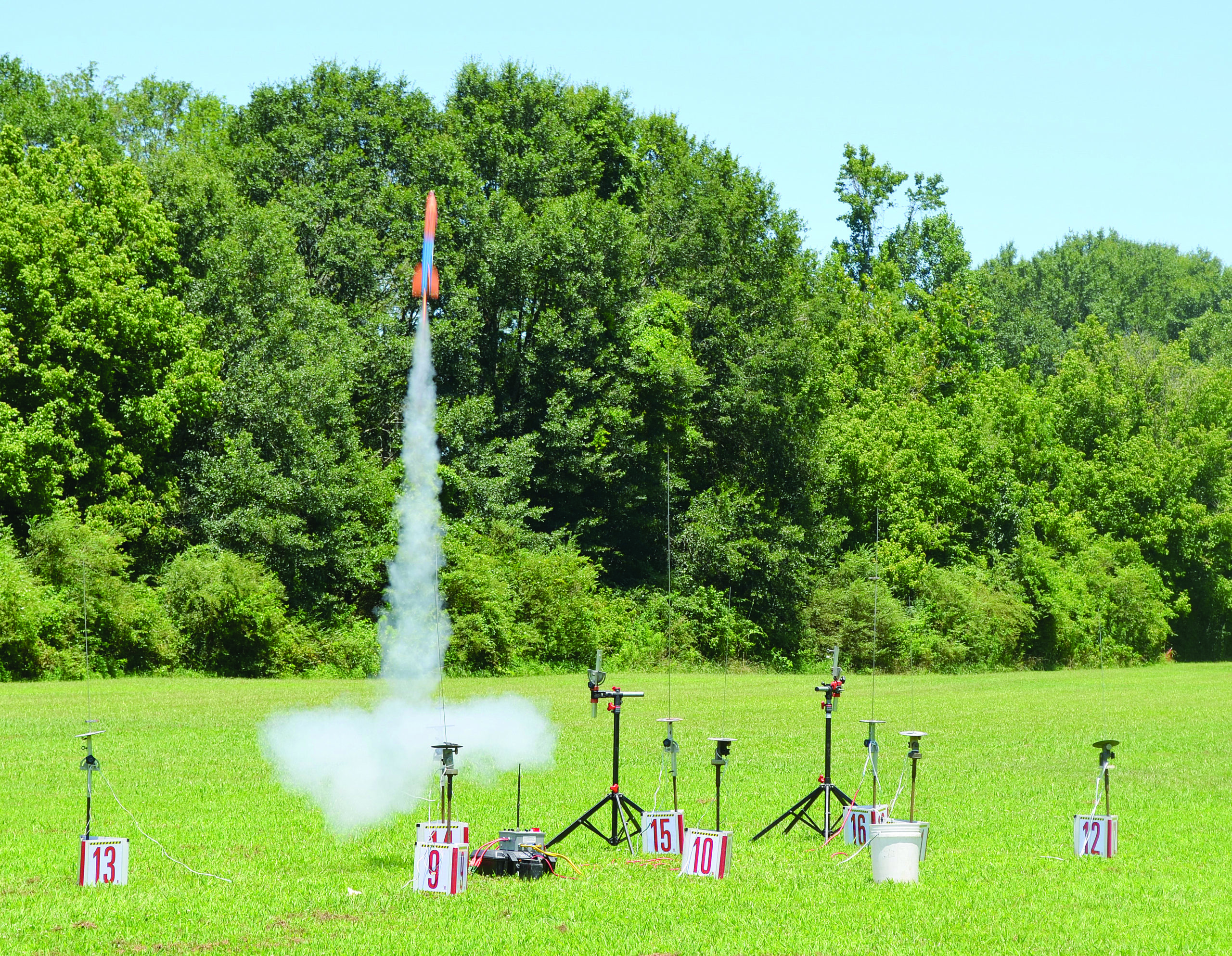
One hot Saturday in July, a cloudless sky burned deep blue above an isolated field hidden among the woods behind a private high school in Atlanta’s northern suburbs. About 20 cars, pickups or SUVs lined the edge of the grassy field and families gathered beneath tents or tarps they’d pitched beside their vehicles, like tailgaters at a football game. In the middle of the field, a pair of model rockets sat side by side on launch pads, waiting the electronic command to blast skyward.
One belonged to Maddie Cain, a 9-year-old from Peachtree Corners who enjoys flying rockets with her dad. She and Nicolas Ruthruff, a 7-year-old friend from Acworth, planned to launch their rockets side-by-side in a “drag race,” a competition to see how well each rocket performed. The winner would be the last rocket to hit ground. Jorge Blanco, president of the Southern Area Rocketry club (SoAR), stood in the shadow beneath a tarp next to the launch area. Blanco counted down from five to zero and the rockets zipped into the sky. After just a few seconds, they headed back to earth. Nicholas’ rocket won. The two rocket racers ran across the mowed grass to collect their models so they could fly another day. “Good race,” Maddie said.
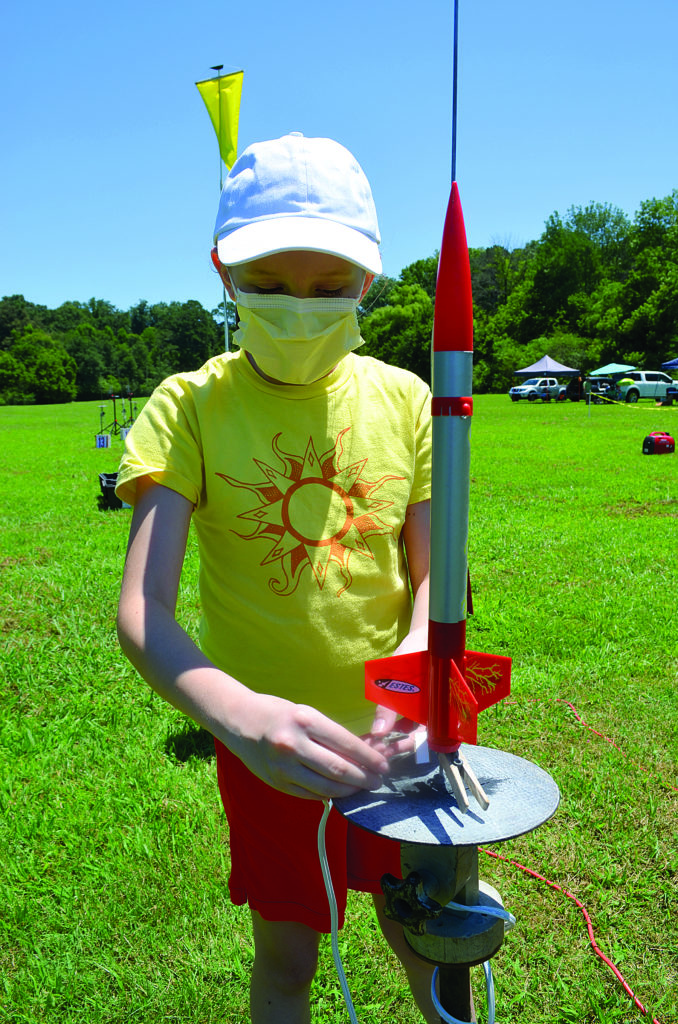
Maddie learned about model rocketry from her dad, David Cain. Cain, a 61-year-old software interface architect, first flew model rockets as a boy who was, as he put it, “growing up in the Space Age.” He moved on to other interests as a teenager, he said, but picked up the hobby again a few years ago as a common interest with his children, Maddie and her 12-year-old brother Jim. This year, Cain took over as vice president of the 400-member SoAR.
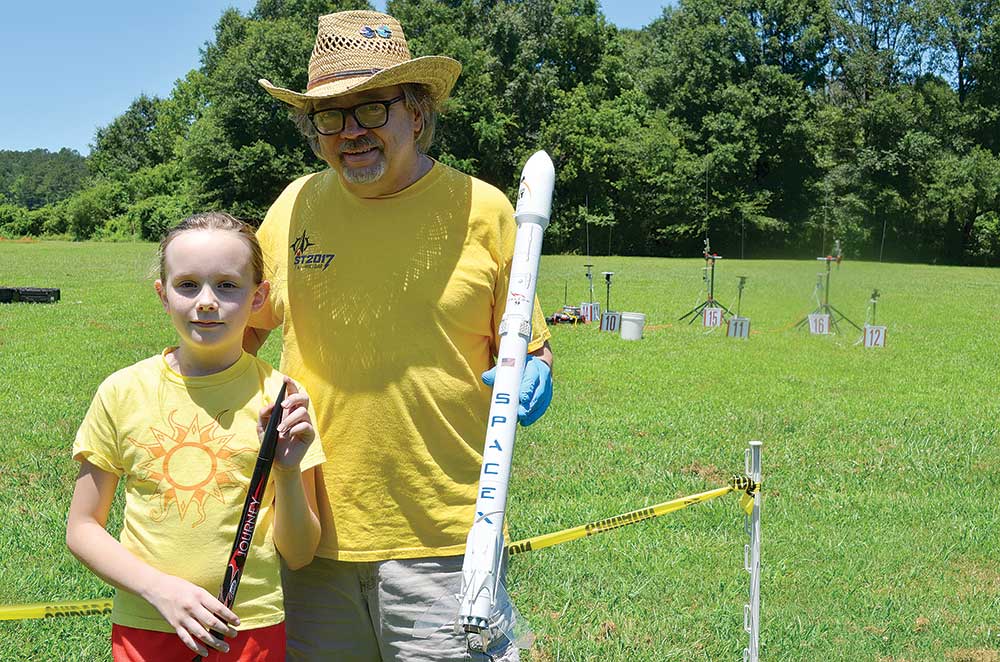
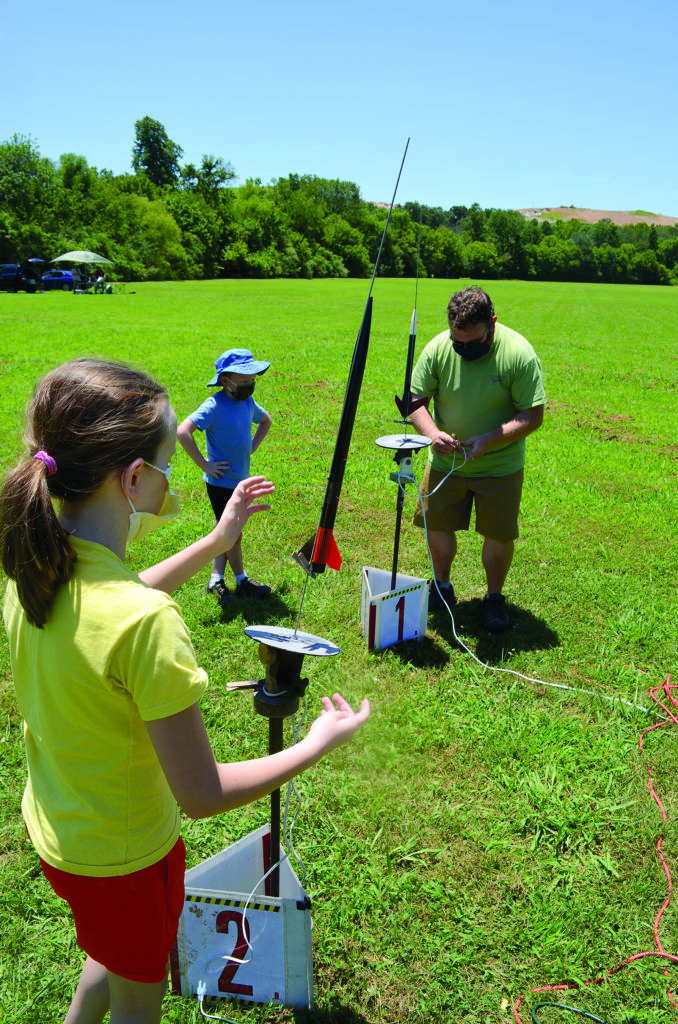
These days, he and another Peachtree Corners resident, Moreno Aguiari, are working to help introduce metro Atlantans to machines that fly.
New kind of aviation museum
While Cain engages in model rocketry, Aguiari, a 44-year-old commercial pilot and publisher of a magazine about vintage warplanes, wants to help create a new museum and education center built around Georgia’s aviation history and industry. The new Atlanta Air and Space Museum is proposed for 18 acres on the eastern side of the DeKalb-Peachtree Airport, the county-owned airport in Chamblee usually referred to by its call letters, PDK. The property, once used for a runway but now abandoned, offers a close view of PDK’s working runways and airport facilities.
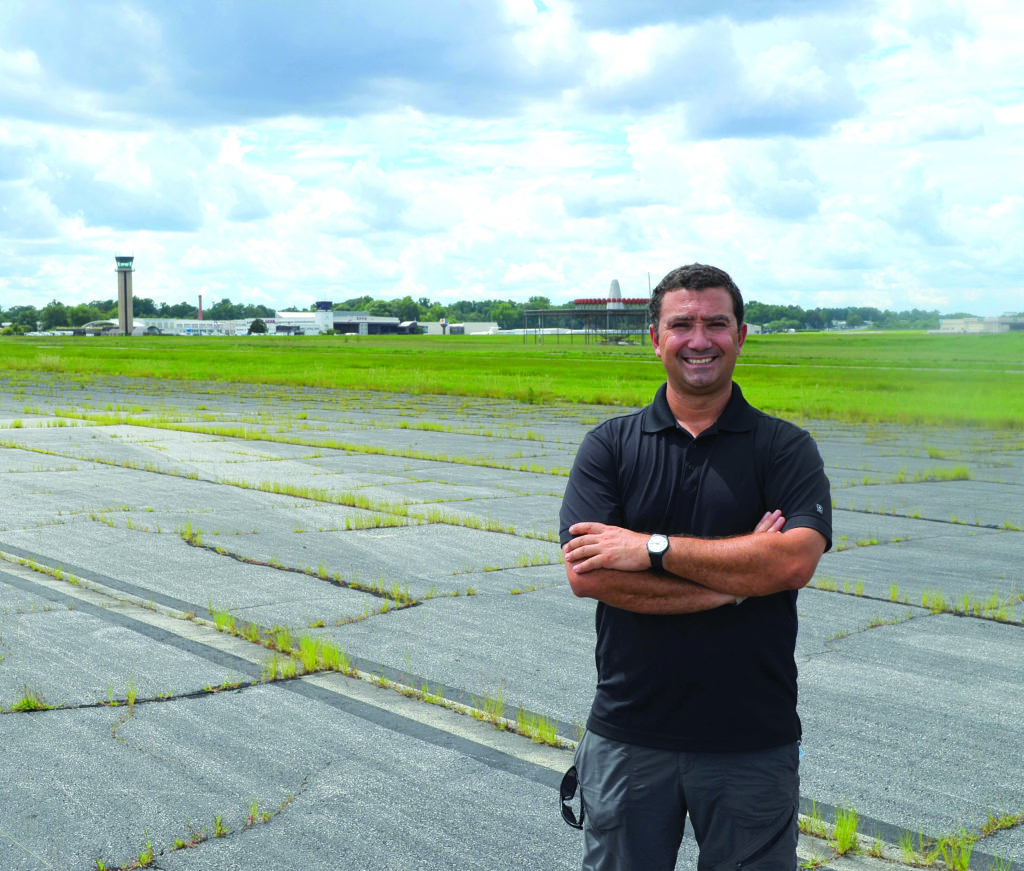
Aguiari is a founder and board member of the Inspire Aviation Foundation, a nonprofit created about three years ago to create the museum. “The purpose of this museum would be to acquire, restore and conserve historic aircraft, spacecraft, technology and related artifacts, while creating innovative visitor experiences that are educational and entertaining,” the foundation said in a press release.
Aguiari puts it a bit more simply. The museum’s proponents, he said, don’t want simply to create another building full of old airplanes, like plenty of other aviation museums scattered around the country. “We are not going to build your typical box full of planes,” Aguiari said as he sat in a conference room at PDK once recent afternoon. “That’s an old concept of a museum.”
Instead, they see exhibits that are interactive and engaging to young people. They want the DeKalb School System and perhaps even Georgia Tech to be involved with the aviation campus to create a place where students can learn about aerospace careers and flying.
The foundation wants to create a place “designed to build aspiration for a life in Science, Technology, Engineering, Arts and Mathematics (STEAM),” it said in its press release. “But the platform will go further than aspirations to nurture an interest in aviation throughout someone’s entire life. The [foundation] wants to offer a tangible path from childhood all the way through an aerospace career and beyond.”
Aguiari realized the PDK museum should be different when he was taking his own children to see other aviation museums. He liked looking at the old planes, he said, but his kids soon were bored. “My 5- and 6-year-old kids were telling me, ‘Dad, can we go someplace else? Nothing moves here.’”
Fellow foundation board member Latessa Meader, a C-130 pilot in the U.S. Air Force Reserve, got excited about and signed on with the project last year because of its educational components. She’s a former high school math teacher who says she became an aviation mechanic and then a pilot because she thought the most interesting teachers were those who had done other things during their lives.
“We don’t want static airplanes with placards in front of them,” she said. “All of us have a passion for aviation and we want to inspire that in students from age 1 to 100.”
She said she wants the project to showcase careers in aviation and aerospace and show students how to pursue jobs as engineers, air traffic controllers, mechanics or baggage handlers. “Anything you enjoy doing can be [related to aviation],” she said. “One of my long-term goals in this is to capture their passions.”
The museum would tell the story of aviation in Georgia. Georgians have built airplanes at Lockheed Martin and Gulfstream, flown them for Delta Air Lines and operated the busiest airport in the world. “Georgia has an incredible aviation history [stretching back] almost 120 years,” Aguiari said.
Georgia’s aviation heritage
Georgians were building and flying airplanes soon after the Wright brothers showed it was possible. One of the nation’s aviation pioneers was Ben Epps of Athens, whose descendants made flying a family tradition that continues. His youngest son, Pat Epps, started Epps Aviation, the fixed based operator still in business at PDK.
The land that would become PDK was part of the site of Camp Gordon, a World War I army training base. The property was sold at auction after the war to a private owner, and then in the 1920s and early 1930s, aviation enthusiasts thought the land would make a good airport, according to the PDK webpage. In 1940, DeKalb County bought the land and dirt runways and opened it in 1941, the webpage says.
During World War II, the property was home to a U.S. Naval Air Station. “Many young men, not only from Georgia but from all over the United States, began their flying careers during the next few years, while the Navy was using the airport for pilot training,” the PDK webpage says.
After the war, the Navy continued to operate the airport as a Naval Air Station until a new facility that could handle jets opened at Dobbins Air Force Base in Cobb County. PDK returned to full civilian use in 1959.
One of the first collections the aviation museum has received is composed of memorabilia from retirees of the Naval Air Station. The collection includes photographs, logbooks, newspaper clippings and other artifacts that had been displayed during annual meetings of the retirees. The foundation is having the items photographed so they can be preserved digitally, Aguiari said. With the items, the museum can showcase the air station’s history so “the guys who served here will not be forgotten.”
Efforts to pull together the aviation museum and to develop the campus are expected to take at least three to five years, Meader said. The foundation is conducting a feasibility study for the project and for fundraising for the millions of dollars needed for the project, Aguiari said. He remains hopeful.
“I’m just a regular Joe with a big vision,” Aguiari said. “It’s not like we have millionaires or big companies behind it. It’s just a bunch of regular guys trying to build something incredible.”
Soaring high
David Cain pursues a different vision. He still regularly fires small kit rockets similar to ones his daughter Maddie and Jim build and fly, but he’s also looking up to see just how high some of his models can soar and survive.
SoAR organizes launch days for small rockets every month. (The launches are open to anyone who wants to fly rockets, not just members). But its members also take part, a few times a year, in high altitude flights from fields in south Georgia, Alabama or other places far from the flight paths of airplanes. Cain has taken part in a few of those outings. He said his collection now includes three high-powered rockets, three middle-level ones and seven smaller ones. His personal best flight went up about a mile, he said.
Still Cain likes flying rockets, no matter what size they are. After all, not all launches work. Some rockets sit dead on the launchpad. Others blow up or reach only a few feet before heading back to ground. Others end up in the trees surrounding the range and can’t be recovered.
“I have never lost the thrill of seeing my rocket go up there,” he said. …“It is a challenge. It’s the joy of watching it fly.”
The hobby also allows him to indulge other passions. He likes to operate a 3-D printer to make things, he said, so now he creates his own rocket parts. At the range in July, he flew a model of the Space-X rocket that he had built from a kit he bought from Space-X, he said. The largest rocket he’s built, he said, stood about six feet tall “…and looked like a length of black hose. I have gotten to a point that my teenage self would not recognize the rockets I do now.”
These days, flying rockets also connects him with his kids. “There’s not just one reason I enjoy it,” Cain said. “I discovered when I did it with my boy that I still enjoyed it. I just hadn’t done it in a while. As a hobby, it allows me to integrate my different interests…. It’s a great way to spend time with the kids and to give them experience building things with their hands.”
Cain said building and flying their rockets gives rocketeers the feeling of personal satisfaction and achievement that video gamers feel when they finally conquer a difficult level in a game and “level up.” “Rocketry delivers a similar kind of thing,” he said. “It’s a ‘level-up’ experience when you do something like fly your rocket to 5,700 feet and then then get your rocket back.”
Maddie sees that, too. “I’m enjoying myself pretty much,” she said after a few launches on that hot Saturday in July. “Today, there is a breeze going and there are kids here. … The main reason I’m here is to hang out with my dad and have fun flying rockets.
“It’s kind of cool to watch your rocket go up and realize, ‘Hey! I built this thing and it’s working!’”
Find Out More
Learn more about rocketry and the museum project at:
Atlanta Air & Space Museum — atlantaairandspacemuseum.org
SoAR Rocketry —soarrocketry.org
Related
Veteran newspaperman Joe Earle has covered Georgia and Atlanta and its suburbs since the 1980s. Before that, he worked for newspapers in Kansas and South Carolina.

Community
Peachtree Corners Shines Bright with Light Up the Corners Glow Race this August
Published
2 days agoon
July 24, 2024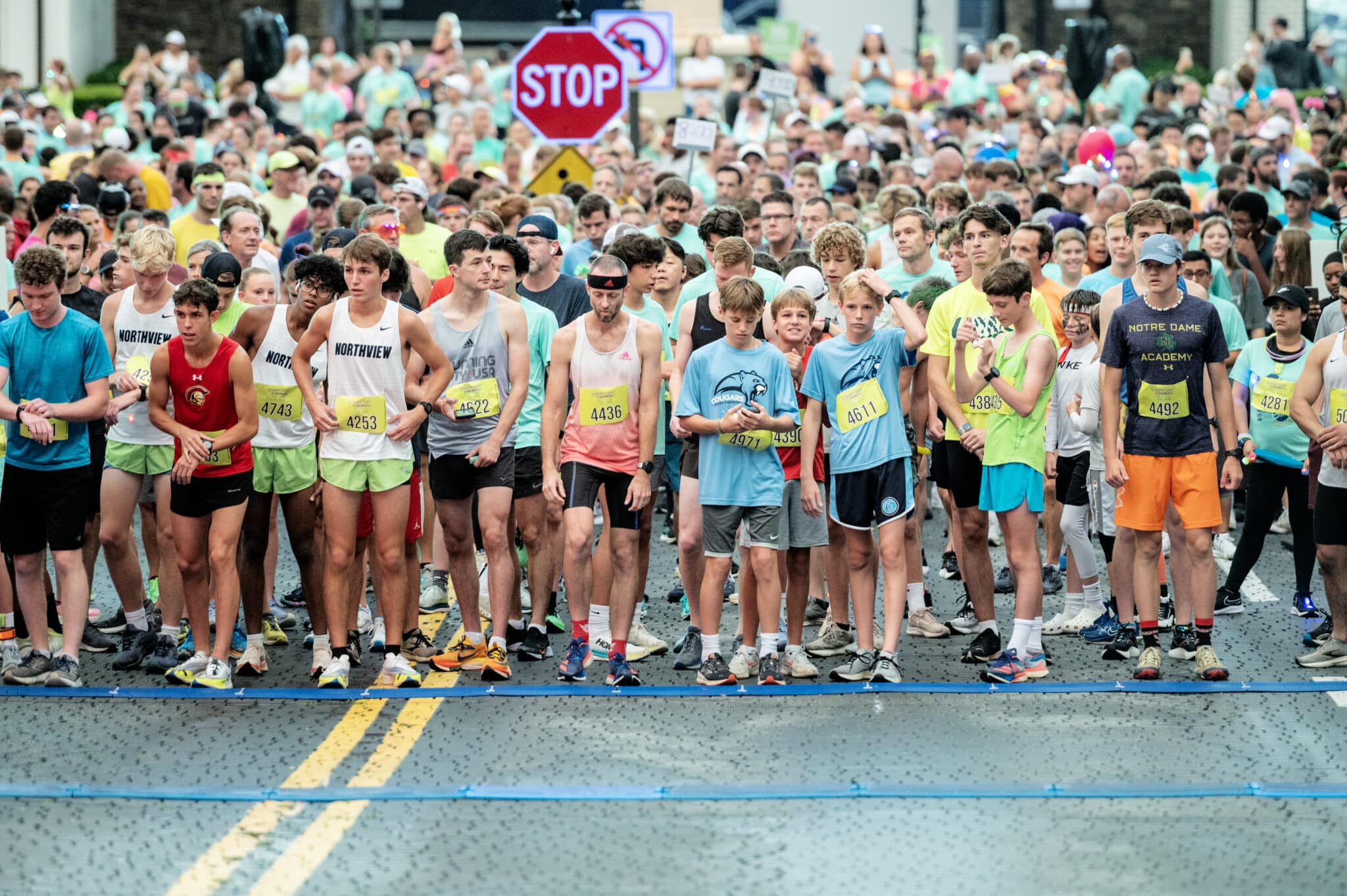
Peachtree Corners’ annual Light Up the Corners Twilight Trot and Glow Race is returning to the Forum on Aug. 10 for its 13th year of building community, getting some exercise and benefitting a very worthy cause.
Amy Massey, the founder of Light Up the Corners, said her inspiration for the nonprofit came from serving on the board of the Fowler YMCA for 10 years.
“I was always looking for ways to raise money for [Fowler YMCA’s] annual campaign. And I rotated off about 12 years ago or 13 years ago. At that time, I was looking for ways to raise money, and the City of Peachtree Corners was talking about becoming a city through UPCCA,” she explained.
“I’m a runner and I was a member of the Y, and we had a running group out of the Y. So, I just recruited some of my running friends and decided we would start a race in Peachtree Corners,” Massey added.
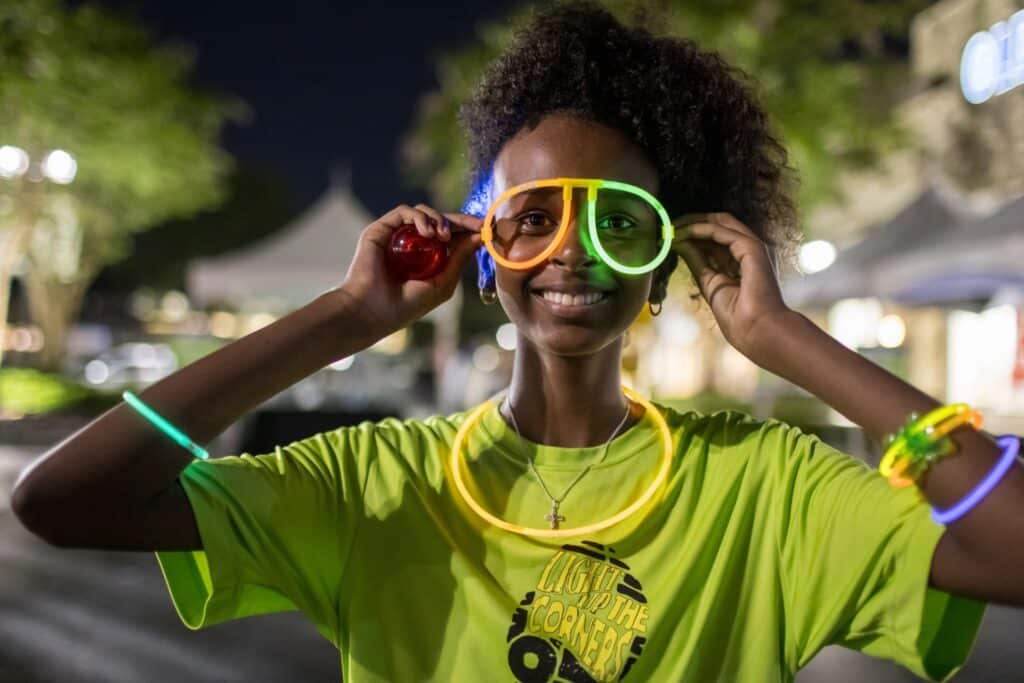
Bigger and better
In its first year, the race had roughly 400 participants. Not a bad turnout for the inaugural event, but Massey and her team of volunteers quickly started brainstorming on how to attract more runners.
“We talked about doing a glow run, and that’s when it changed. So, in year two, we did our first glow run. This year will be our 11th annual glow run and our 12th run altogether. And then we took one year off during COVID,” said Massey.
It’s my baby,” she added. “But I could not do it without the help of my friends and running partners who have been with me all the way. We have some of the same volunteers on our committee now as we did when we started out.”
This year, Light Up the Corners expects over 1,500 attendees.
“There are a lot of glow runs out there that are more of adult-focused parties. But ours truly is a coming together of people of all ages and all walks of life,” said Massey.
“That’s what sets us apart because our largest demographic in terms of age groups is the 10 to 19 range. A lot of school-age kids come out, a lot of young kids with their parents. We have 300 little kids who sign up for the Twilight Trot, which is just half a mile long. And so that attracts the little ones. It’s heartwarming to see people of all ages come together and it’s a healthy fitness-focused, family-friendly community activity,” she added.
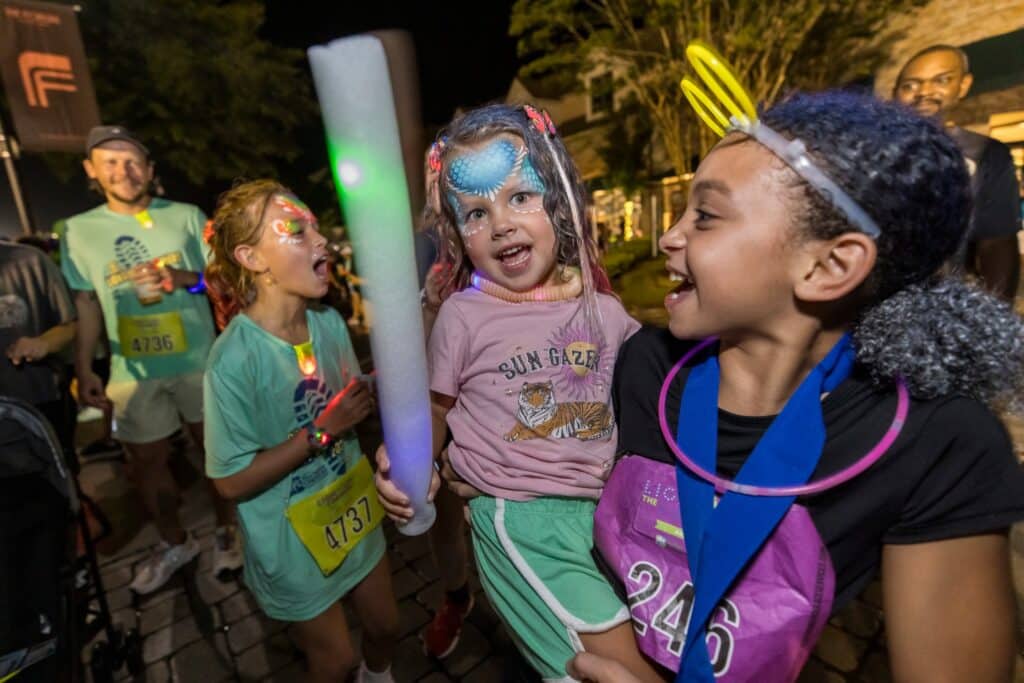
A big, family-friendly party
In addition to two races: a Twilight Trot 1K for the kids, and a 4-mile Glow Race for the adults, the Forum will be showcasing its new plazas. The pre-party and Glow after party will be held on the Grand Plaza which is set to open on that very weekend.
“Each participant gets a lot of glow swag, we want to make sure everybody lights up the course as they’re running around Peachtree Corners, and also to keep them safe so everyone gets that and a glow baton,” explained Massey.
“We welcome runners, walkers and people of all ages. It is more about the fun and the excitement of coming together as a community than it is about racing or setting any speed records,” she added.
The Forum has also hired Yvonne Monet, a radio personality and DJ with Q99.7, to entertain eventgoers and keep the energy up with great music. There will also be face painting and neon fingernail painting, along with roaming entertainers on roller skates and more, courtesy of the Forum.
On top of that, race sponsors will be providing food and samples throughout the night, like pizza, watermelon and a wide variety of other tastings from The Forum restaurants.
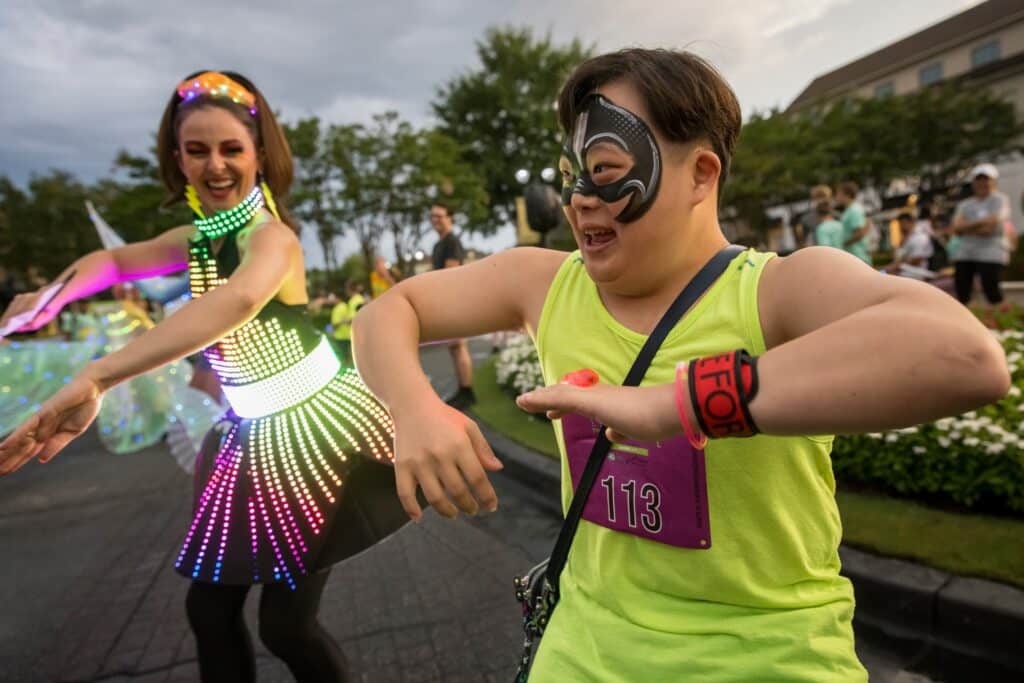
Coming together for a worthwhile cause
Light Up the Corners is an IRS-recognized 501(c)(3) nonprofit run entirely by volunteers. There are no paid positions at all, and 100% of proceeds go to the Why it Matters Campaign at the Fowler Y.
“All money stays local, and it is a passion of our committee to help the Y through this campaign. We believe that all people, regardless of their ability to pay, deserve to benefit from the programs and services at the YMCA. And they have a sliding scale that they use to provide financial assistance to people,” said Massey.
“There’s a wide range of programs and services, and I’ve seen firsthand the work that they do there and the life-changing effects that it has had on so many people in our community,” she added.
Sponsors are also fundamental to the event’s success.
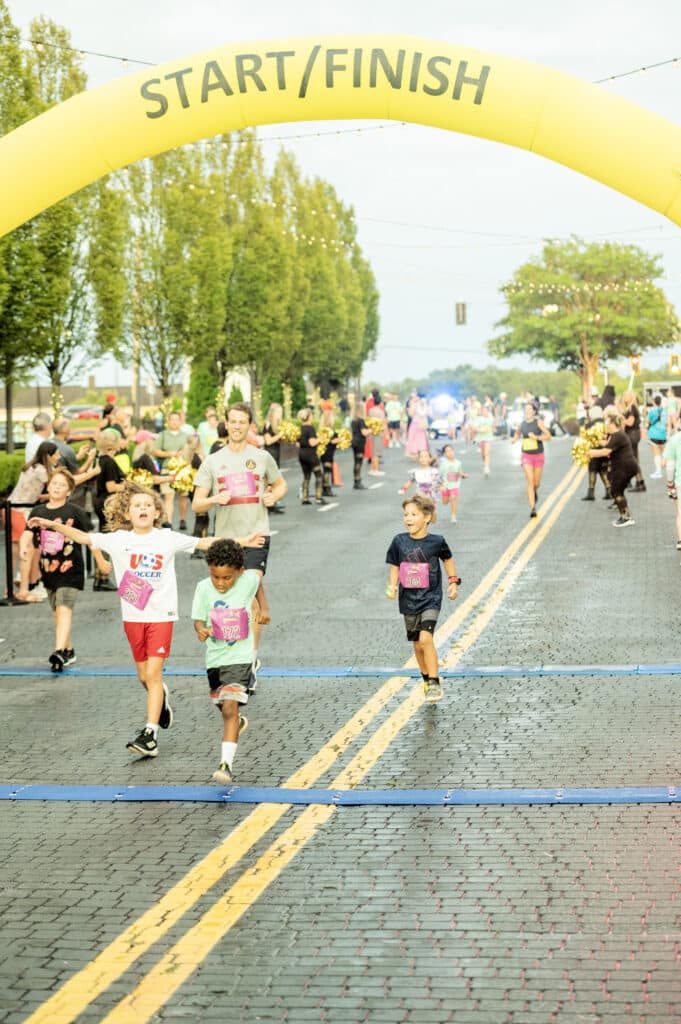
Without the support of sponsorships and generous donations, there would likely not even be a race because the associated costs would cancel out the registration fees, explained Massey. Sponsors allow Light Up the Corners to offset all costs of the event so that 100% of registration fees by individuals go directly to the YMCA.
“I will say that North American Properties, when acquired The Forum, have gotten behind this event 110%. They have been amazing in their support and generosity in providing the tents, the entertainment and the backbreaking work of setting up something like this,” said Massey. “We couldn’t do it without them or the City of Peachtree Corners which has been a title sponsor since day one.”
Fun fact: For the first time, Light Up the Corners held an open competition to see who in the community could design the best t-shirt logo for this year’s race. Daniel Lee was chosen out of over 30 submissions and was awarded $1,000 for his efforts.
To participate in the annual Light Up the Corners Glow Run, register at lightupthecorners.com or simply line up on the racecourse and cheer the runners on as a spectator. To become one of over 200 volunteers, email Amy Massey at amassey@runthecorners.com.
Related
Community
Twin Authors Chronicle Antics of ‘Four-Legged Brother’
Published
2 months agoon
June 6, 2024
Berkeley Lake second graders make fans across the globe with sweet children’s story.
When rescue dog Apollo found his forever home with Megan and Mackenzie Grant, the Berkeley Lake twins knew they had added a special member to the family. He’s so beloved that he’s considered their “four-legged brother.”
Apollo is a Boston terrier. The breed is known for its friendliness and love of people and children. According to the Purina Company, makers of all kinds of pet food, Boston terriers make affectionate pets and are outgoing and social.
While they are called ‘terriers,’ they are not in the terrier group, nor do they behave like them. They are far happier at home with their owner than getting into the usual mischief.
But Megan and Mackenzie see him as a silly addition to the family.
“He’s super cool because he’s always up for fun and loves us a whole bunch. And guess what? We love him back even more! He’s like the best friend ever, wagging his tail and making everything awesome!” they said in a press release.
Apollo’s birthday inspiration
As his first birthday approached, the girls, six years old at the time, wanted his day to be special.
“I said, ‘Well if you want to come up with something to do, let’s write it out,’” said mom Tameka Womack. “So they started writing out all these different adventures, and it was so cute.”
Megan recalled that their teacher had told them about someone who had published a book, and she asked if they could, too.
“When I read through it, they had all the different things, like playing dress up because we had bought some clothes for him. And we take them out for long walks around the lake and stuff,” Womack added.
Although their favorite subjects in school are PE and art, they did such a good job with the tale that Tameka worked with them to get it published. On Feb. 1, the young authors released the children’s book, “How We Love Our Four-Legged Brother.”
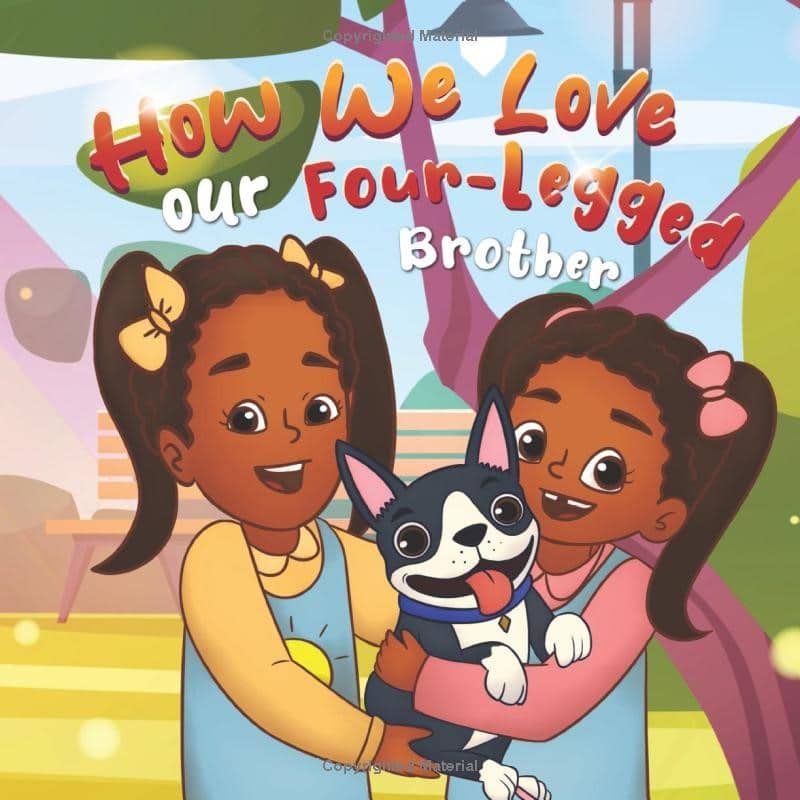
Publishing success
The 30-page book took off almost immediately. Available for print and digital through Amazon and print editions through Barnes & Noble, the book has reached customers in the U.K., Germany, France, Japan, Canada, Australia, Sweden, the Netherlands, Italy, Poland and throughout the U.S.
The girls and their mom were so pleased and surprised to find out the book was No. 1 in its category on Amazon.
“They were just so excited that people actually bought the book,” said Womack. “They were just like, ‘Wow, who is buying this?’”
Feedback from fellow twins, animal lovers and teachers showed that the story resonated on many levels.
“As an educator, I am always on the lookout for diverse and inclusive literature for my students. ‘How We Love Our Four-Legged Brother’ not only captivated the imaginations of the children in my class but also served as a wonderful conversation starter about friendship, empathy and the beauty of diversity,” wrote Ashleigh Darby.
The royalties from book sales are tucked away, with a percentage going to Apollo’s wardrobe.
“He won’t go out in the rain without his raincoat … or out in the winter without his sweater,” said Womack. “We have a little budget for his clothes because every time the girls see something, they’re like, ‘Oh, I think Apollo will like it.’ I’m like, I think he would too, but let’s let it stay in the store.”
Nurturing creativity
Although both mom and dad are engineers and kind of hoped that the twins would follow in their footsteps, Womack said she’s okay with them being artistic and creative.
“Writing is teaching them some responsibility and teaching them a little bit about money,” she said. “Now they want to write a book every day.”
Between raising three daughters (the twins have an older teenage sister), running a household with her husband and keeping up with her career at Georgia Tech, Womack said she’ll look for time to continue helping the girls with their dreams.
“With summer coming up, I would definitely encourage parents to help their children explore their creativity in any kind of way, from digging holes in the ground to … seeing the world … to creating books instead of being on the internet,” said Womack. I try to limit my kids’ screen time … and build real memories.”
Find “How We Love Our Four-Legged Brother” on Amazon.
Related
Community
Local State Reps Give Roundup of Legislative Session
Published
2 months agoon
May 28, 2024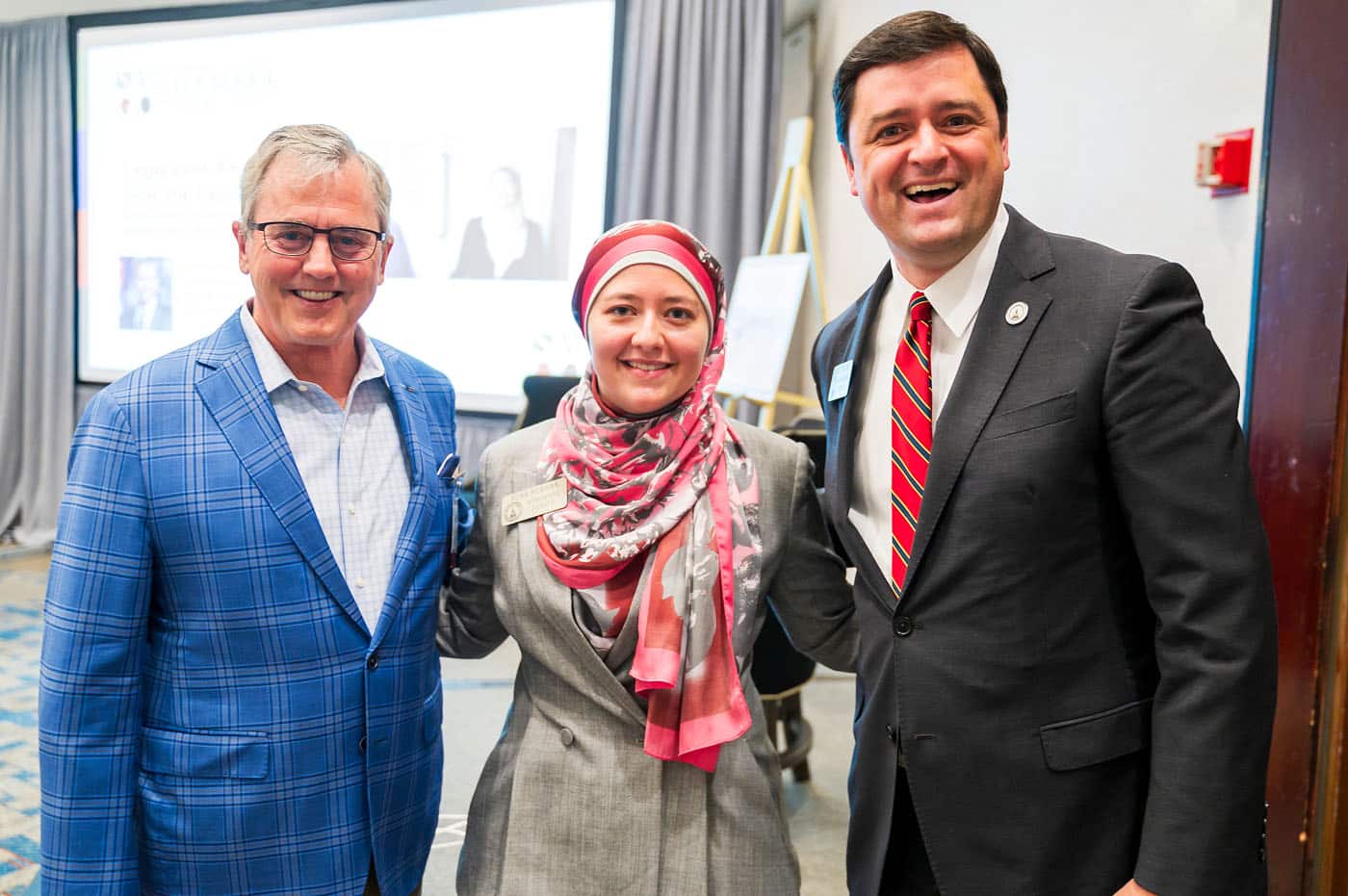
Hilton, Romman trade friendly banter that reflects diverse views in Georgia government
Georgia State House District 97 Representative Ruwa Romman and District 48 Representative Scott Hilton, whose constituents include parts of Southwest Gwinnett County, including Peachtree Corners, sat down for a second time to share information about legislative action at the State Capital.
Their discussion was part of the Southwest Gwinnett Chamber of Commerce First Friday Breakfast series at Atlanta Hilton Northeast.
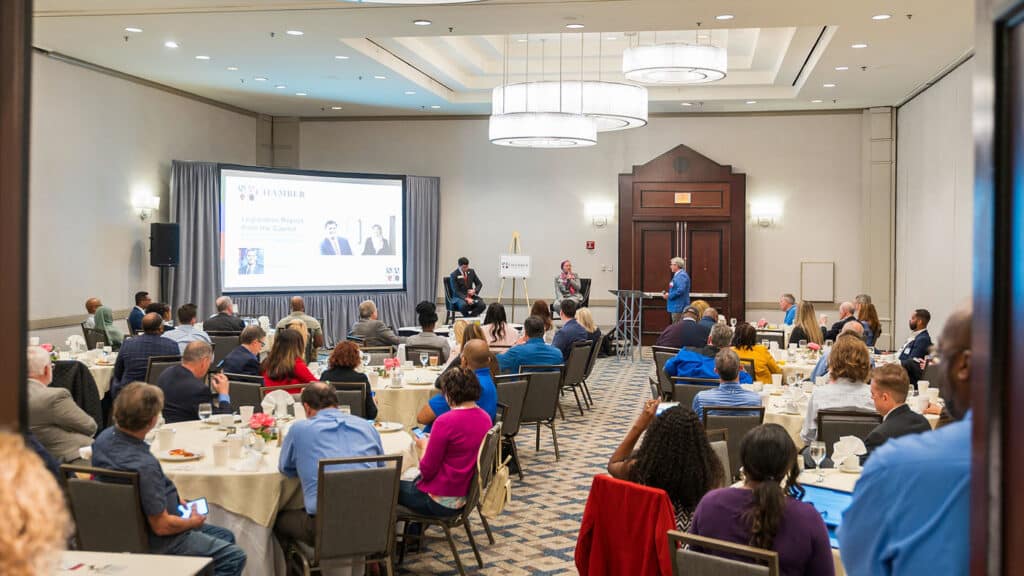
Although they sit on opposite sides of the aisle, Hilton and Romman both seek to sponsor and pass legislation that improves and maintains a high quality of life in the Peach State and provides its residents with what they need.
Elected in 2022, this was Romman’s sophomore year in the State House. She serves on the Georgia House Energy, Utilities and Telecommunications Committee, Georgia House Information and Audits Committee and Georgia House Interstate Cooperation Committee.
Hilton previously served in the State House from 2017 to 2019 but took a “sabbatical,” as he calls it, to serve as executive director for the Georgians First Commission under the Office of Governor Brian Kemp.
He was re-elected to his current position in 2022. He is the vice chair of the Georgia House Creative Arts and Entertainment Committee and the Georgia House Education Committee, as well as a member of the Georgia House Public Health Committee and the Committee on Georgia House Urban Affairs.
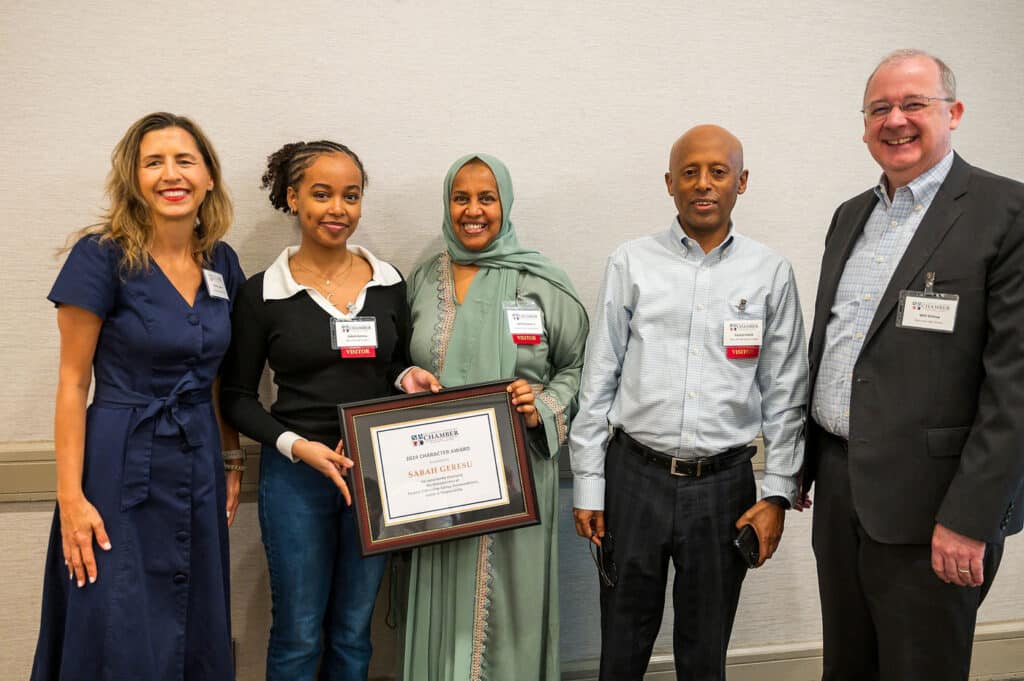
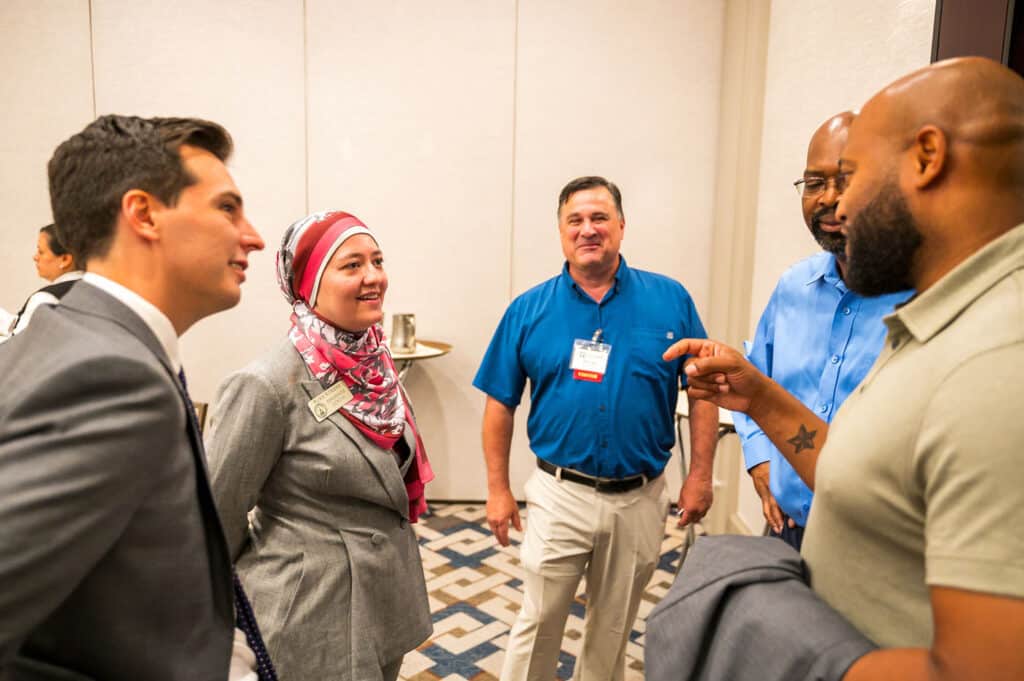
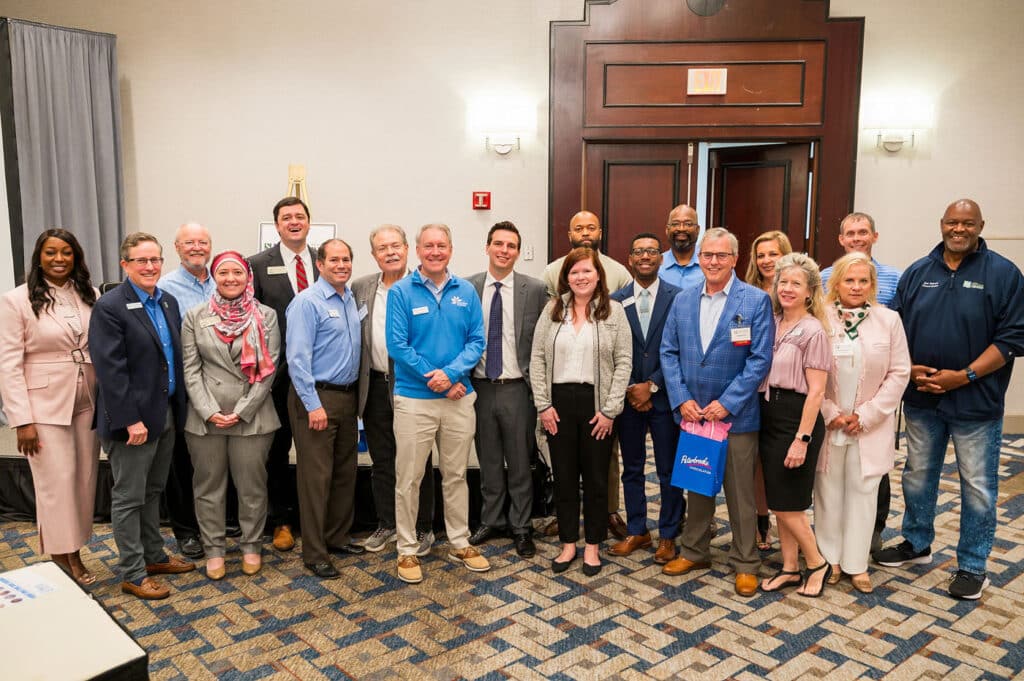
Senate Bill 63
The moderator, Norcross resident and former WAGA political reporter Dale Russell started off with a topic making headlines: Senate Bill 63. This law, signed by Gov. Kemp shortly after the session ended, prohibits charities, individuals or groups from providing bail funds for more than three people per year unless they register as bonding agencies. It also expands mandatory cash bail to 30 new offenses.
“I think it’s going to bring home safety to the community,” said Hilton. “I ran on that issue because as I was knocking on doors, I’ve heard from folks who [want to] keep our community safe. And unfortunately, no community has been immune from the uptick in crime that we had seen post-COVID, so this was one of those bills in response to that.”
Hilton gave examples of crimes where individuals out on bail committed acts such as murder.
“That was our commitment back to our constituents to say, ‘Listen, we’re not going to let bad guys back out onto the streets again to do more crime.’ This bill was in response to this; it’s going to keep our community safe, hold those accountable and bring justice to those who break the law,” Hilton remarked.
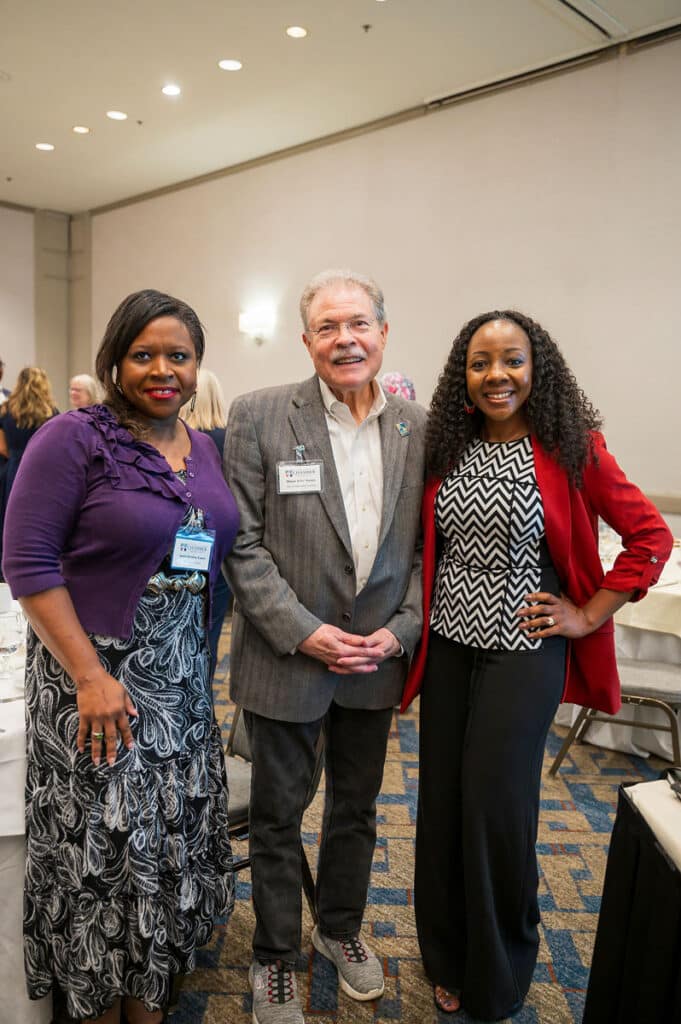
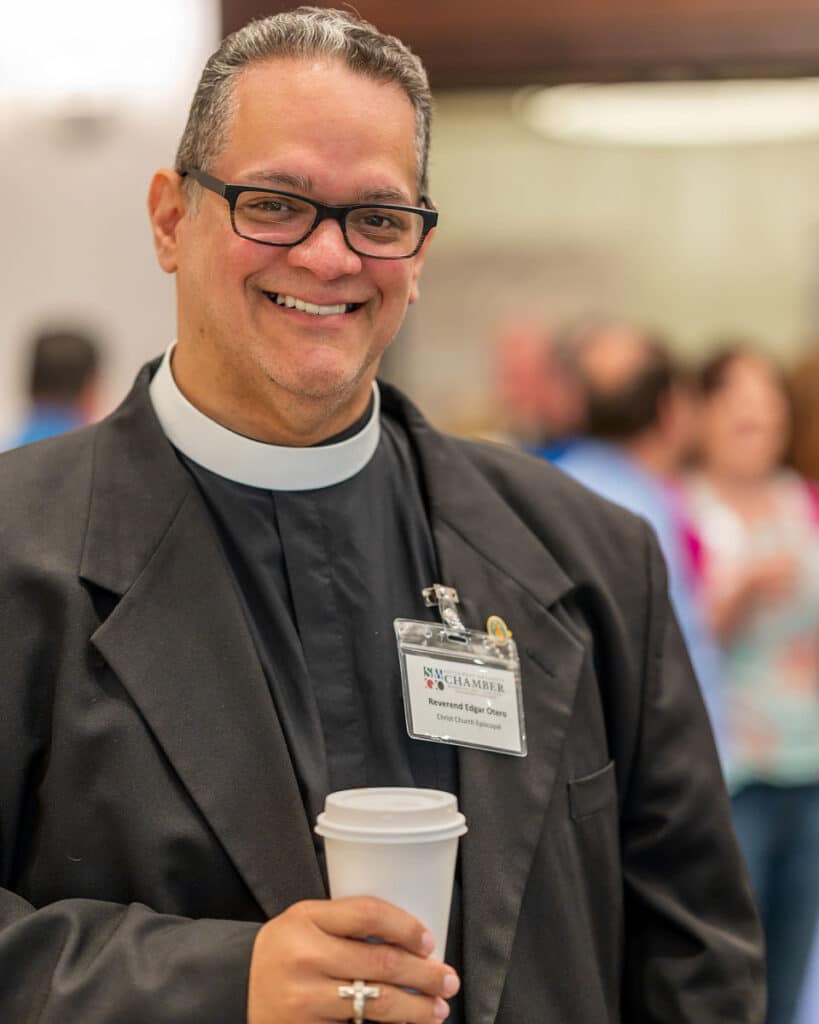
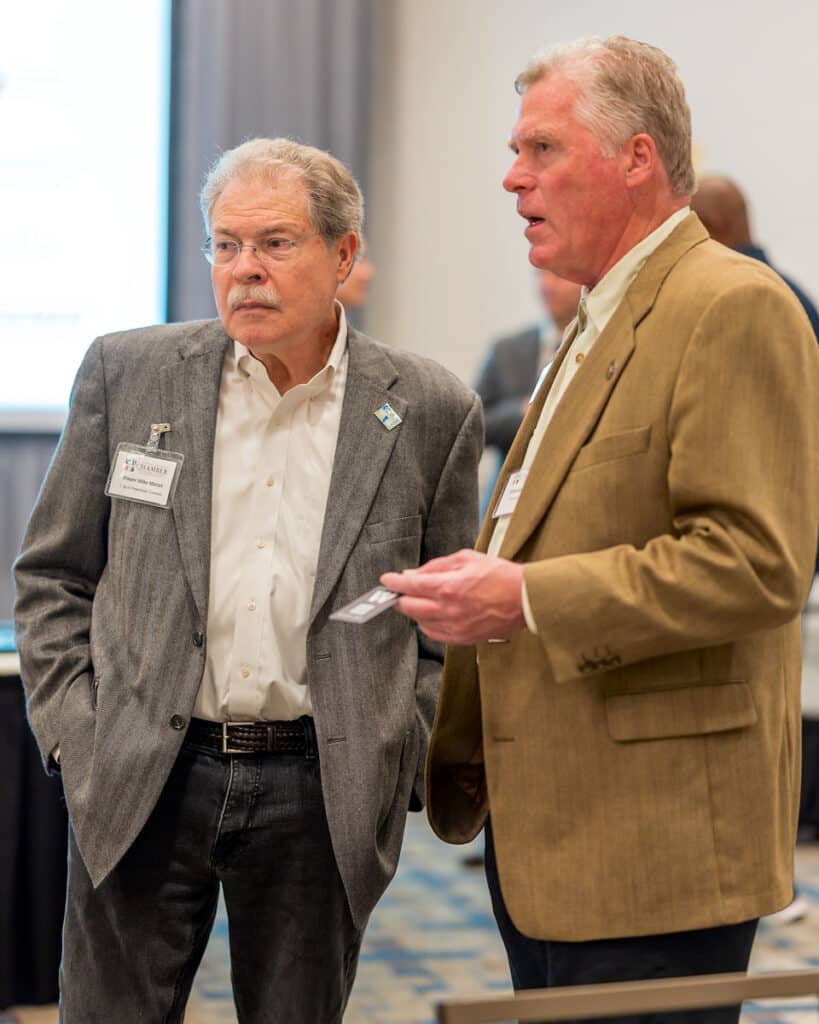
“Unfortunately, right now, we’ve got district attorneys and sheriffs across Georgia who are blatantly disregarding the law and letting folks back out on the streets who pose, you know, safety risks to law-abiding citizens like you and I and your businesses,” he continued.
Russel pointed out that there’s been a lot of criticism of this law.
“The ACLU was totally against it. Some felt like it was imprisoning poor people in the sense, for minor crimes,” he said.
“I do agree with the criticism for a few reasons,” said Romman.
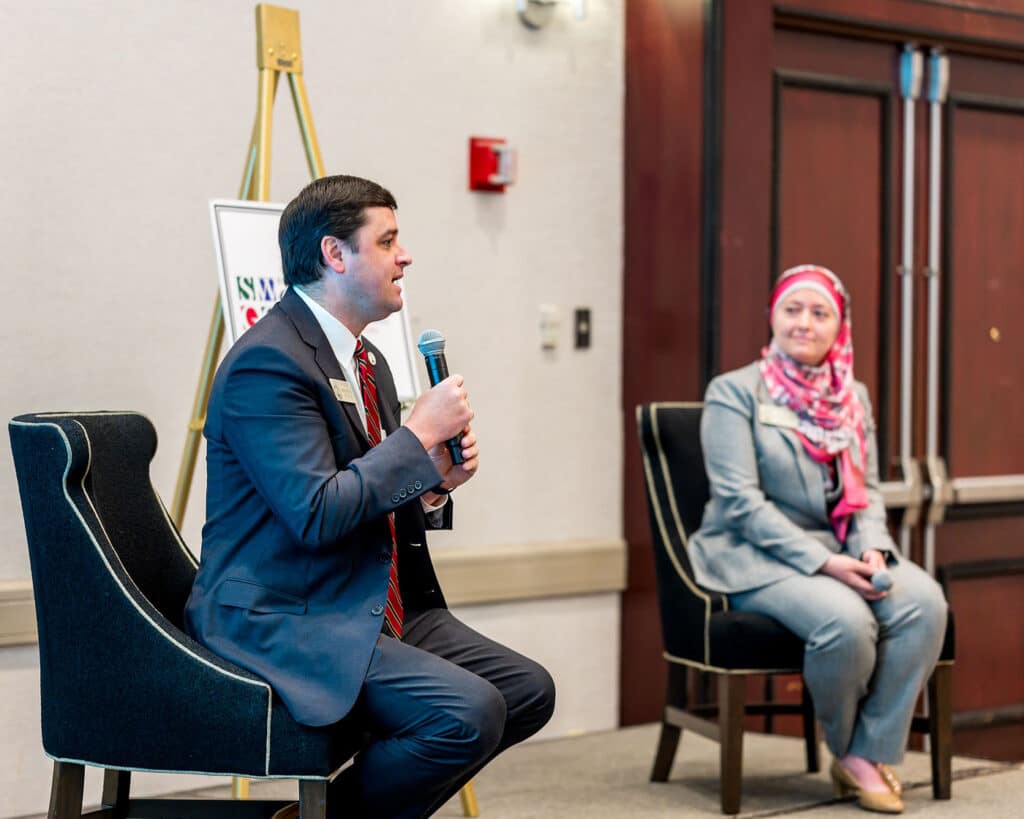
“The problem with this bill is that of the 30 crimes that are listed as now requiring a cash bail, the majority of them don’t actually require jail time, even if you’re found guilty of them. So now, somebody who would not even have ever served time for those crimes that are listed could now serve jail time because they cannot afford their bail,” she explained.
She added that the law doesn’t address the crimes it’s supposed to protect citizens from.
“We see these headlines, but this bill doesn’t address those because what we see happening is that a lot of churches now will no longer be able to bail people out that cannot afford their bail because of this bill,” she said.
“And churches that have been trying to, for example, reunite a parent with their children for Christmas, or whatever the case may be, can no longer do that. There is actually an exception written into this bill for bail bondsmen. So, it’s not like being able to pay cash bail is completely out of the question. It just means that somebody can make money off of it now,” Romman continued.
Hilton said the state isn’t done with addressing public safety issues as they come up.
“I know that’s been a priority of the governor, and I think rightfully so; you know, there’s a reason we’ve got citizens flocking to Georgia over the last ten years; we’ve added a million Georgians to our state, and they are leaving states with policies that don’t have this. They’re coming to Georgia for economic prosperity, for safety and for good schools,” said Hilton.
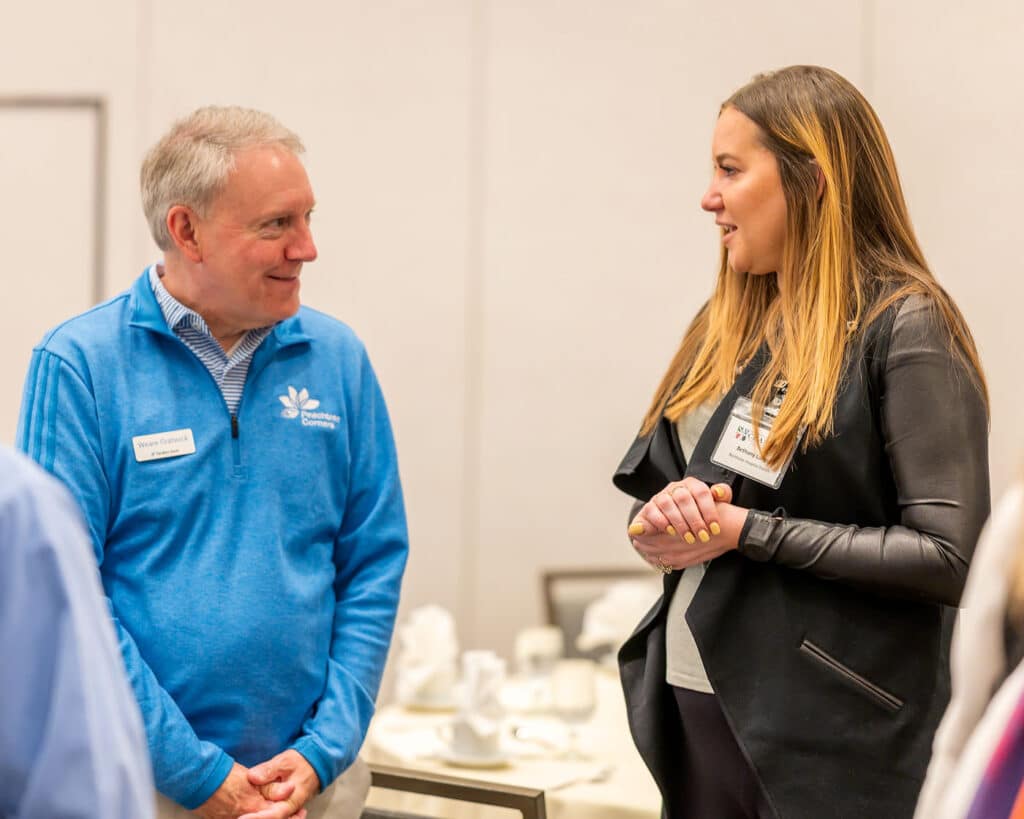
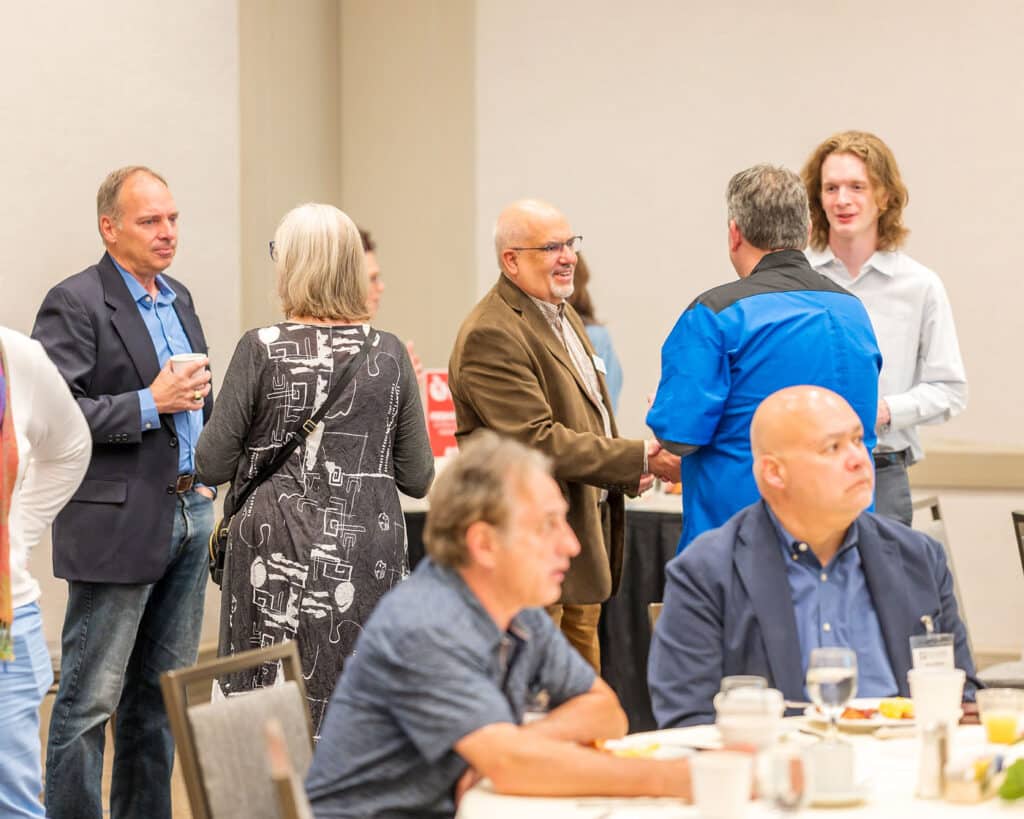
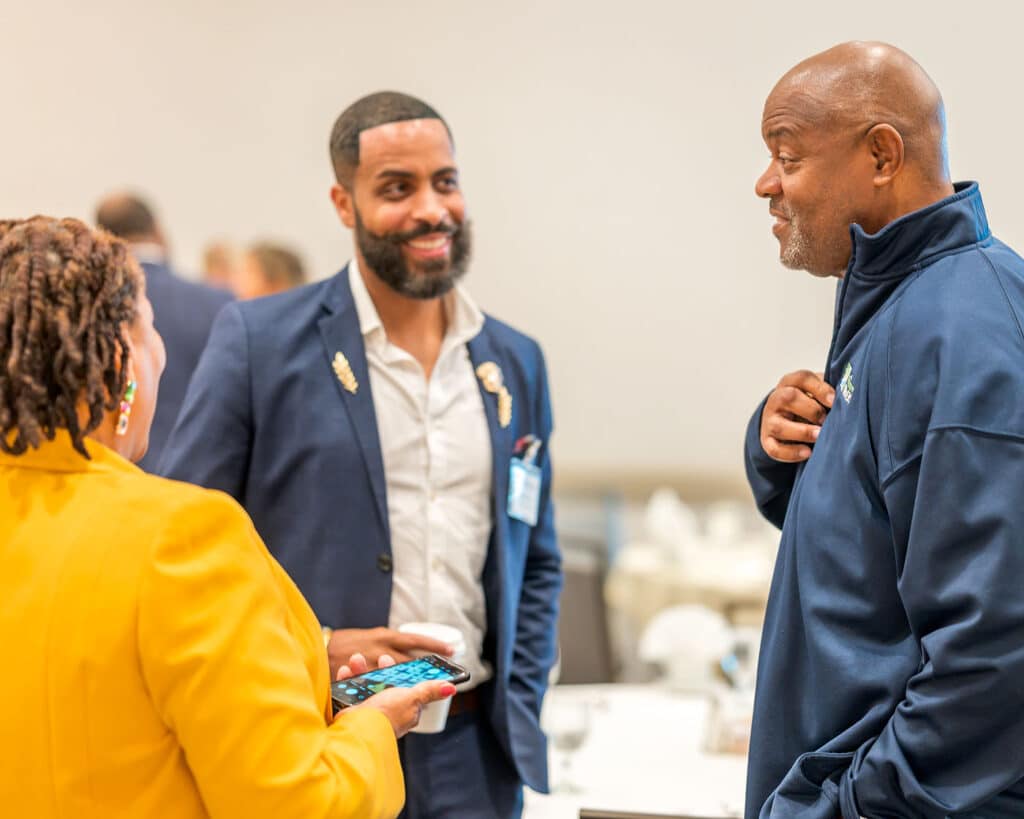
House Bill 1105
Another controversial bill, HB 1105, is framed as a public safety bill that requires local enforcement to coordinate with federal immigration officials when someone in custody is suspected of being in the country illegally.
Some say it’s an immigration bill.
“I know that the federal administration is trying to tell us there’s not a crisis. But there is a humanitarian crisis going on right now on our southern border. … But they’re not handling it the right way, and it’s starting to impact our communities,” said Hilton.
“We’ve got sheriffs who have folks in their custody, who [need] to be reported up to ICE. And essentially, they’re sort of ignoring what’s in the law right now that says you got to report these folks,” he explained.
Romman doesn’t see it that way.
“Again, when you read the contents of the bill, that is, unfortunately, not what it does,” she said. “I’m one of the few, if not the only, member of the legislature that’s done any border project work,” she remarked.
She talked about her work keeping unaccompanied immigrant minors safe.
“I want to remind people that when we talk about immigration, there’s an entire spectrum of people that we are talking about. And it’s not just at the border, it’s also people that fly into our country legally, that gets narrowed into a terrible immigration system,” Romman said.
“It forces our state and county and city police to do federal-level work without more funding. What we’re doing is we’re actually adding an increased burden, essentially onto their workload that we are not paying for. And in addition, within this bill, if they do not do this, they could lose more funding.”
She added that this will take the police away from focusing on local issues and trying to work with people who live in their communities.
“If a community member feels like if they reach out to police for help, and the police are going to deport them, they are less likely to report crimes and less likely to work with our local police department,” Romman said. “If we’re serious about immigration and its relationship to crime, immigrants are 30% less likely to commit crimes, and I don’t want to vilify an entire group of people.”
Romman said she supports a holistic, three-pronged approach that includes improving conditions on the border and pathways to citizenship.
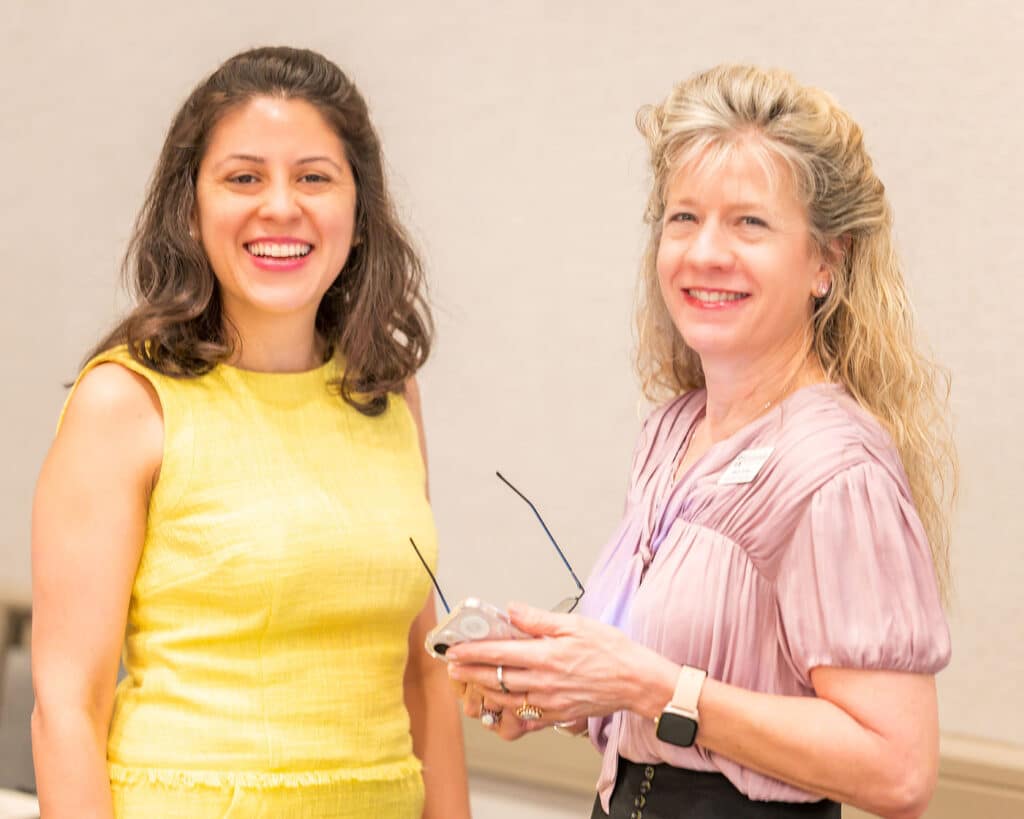
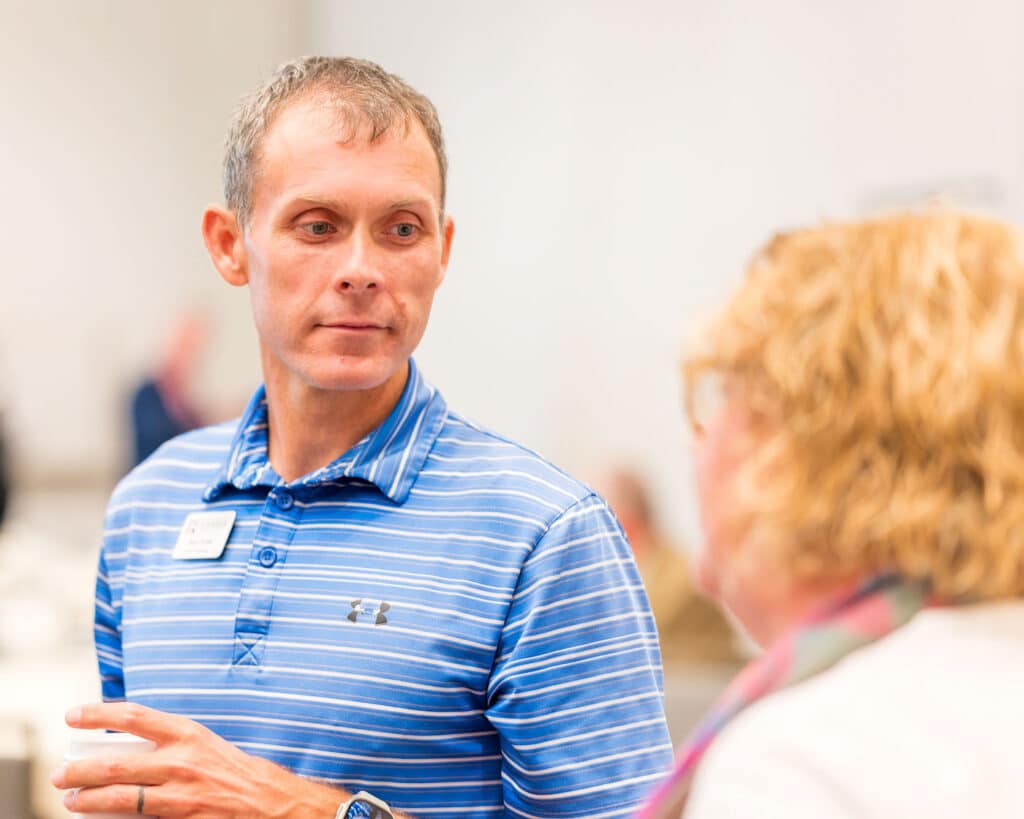
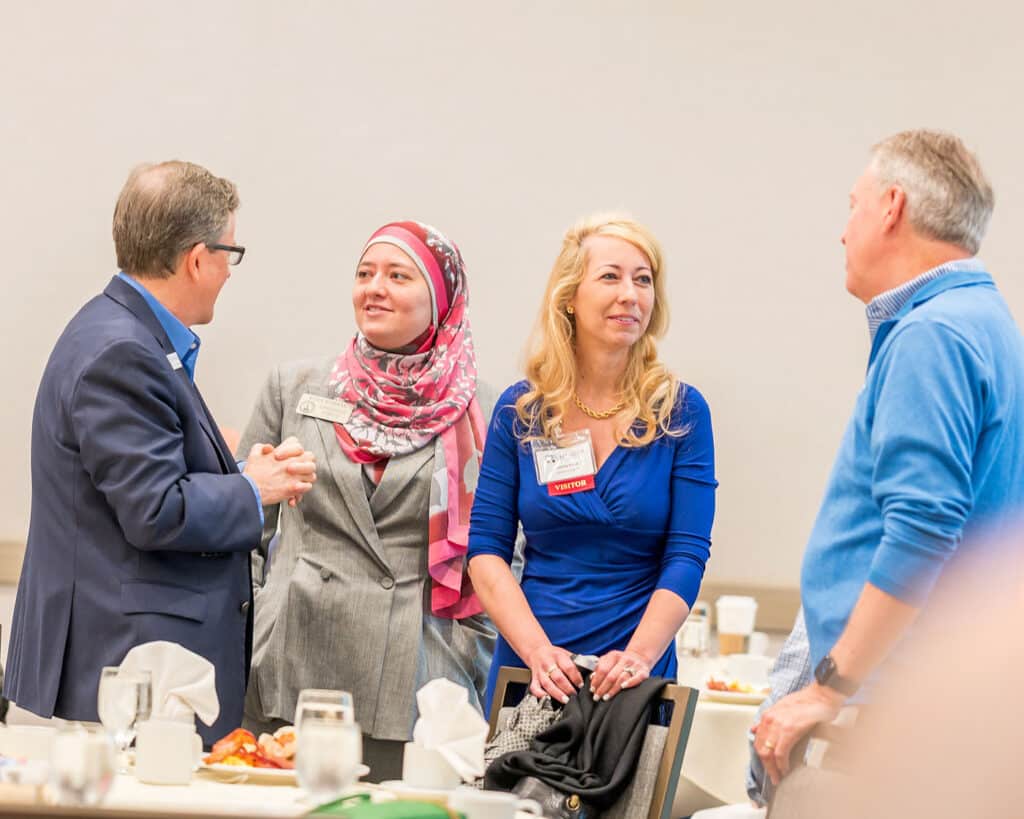
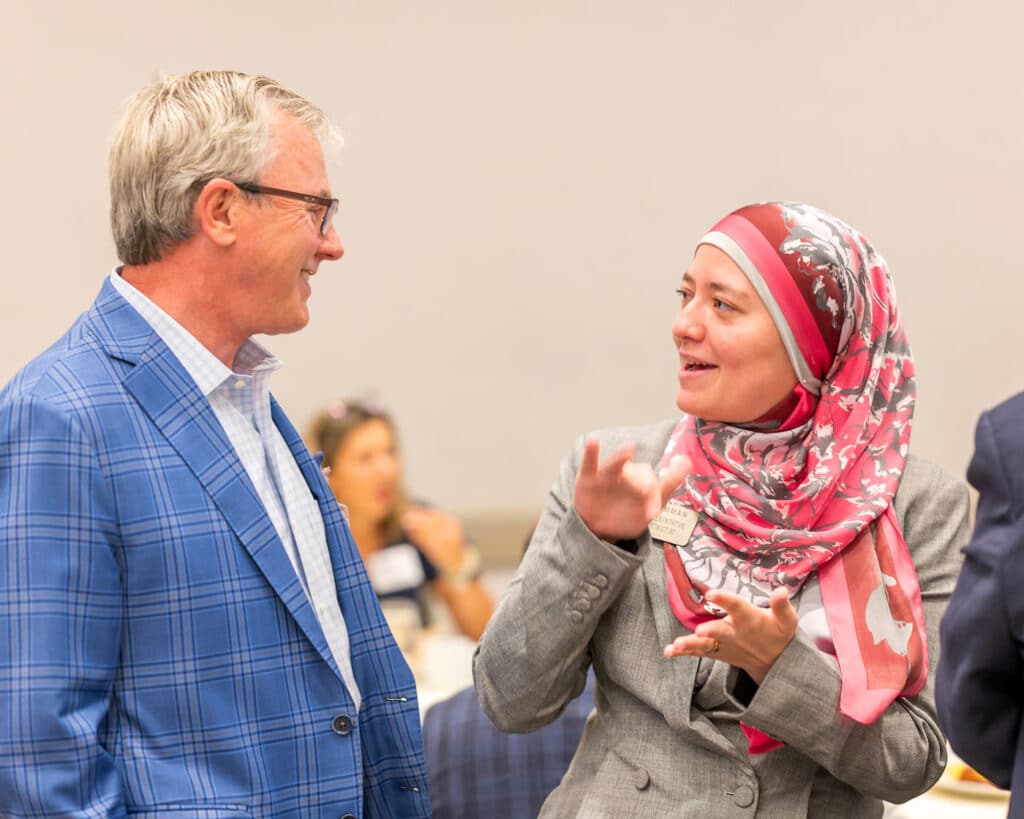
Business-related legislation
When the smoke cleared, both Hilton and Romman joked that they had different opinions about many issues but agreed that’s a healthy part of how the government works.
“The fact that we do disagree and the fact that you, the community, have varying choices and options out there. I think it’s a healthy part of the process,” said Hilton. “And we do have fun. I was telling somebody we play kickball about halfway through the session, and we do get along.”
The discussion moved on to topics such as the FTC ruling on non-compete clauses and tort reform, which just about everyone in the room agreed upon. Although employees could see the beauty of disallowing non-compete clauses, as business owners, they’d hate to see trade secrets put in jeopardy or valuable time and money put into training to benefit another company.
And everyone wanted to see caps on personal injury claims for things like slip-and-falls and fleet vehicle accidents.
“One of the few regrets I have coming out of session is that we didn’t do more on tort reform,” said Hilton. “Right now, Georgia is the number one judicial hellhole in the nation, meaning that we have more lawsuits on businesses and payouts than anywhere else in the country.”
This was one area where both representatives had similar views.
“I don’t think this is a left or right issue,” said Romman. “I want to make sure that whatever tort reform we pursue does not let, for example, a bad-acting company off the hook. But on the flip side, if somebody is just going around and suing everybody all the time to try and make some money off of it, how do you protect corporations and businesses from those kinds of bad incidents litigation?”
“What I will continue to look for when it comes to tort reform is, how are we going about balancing that?” she added.
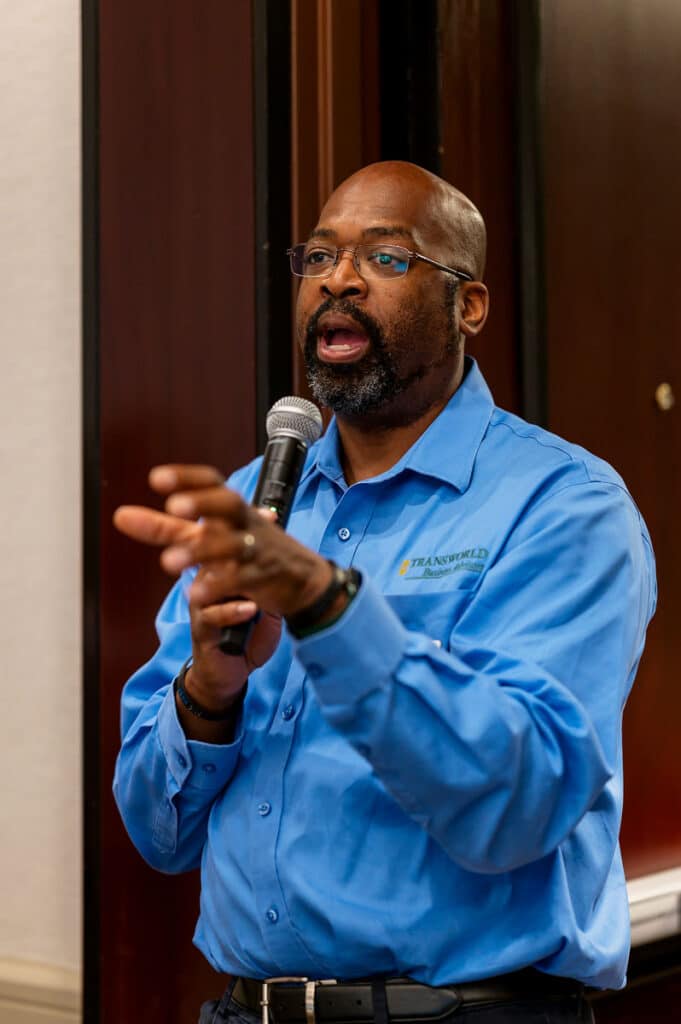
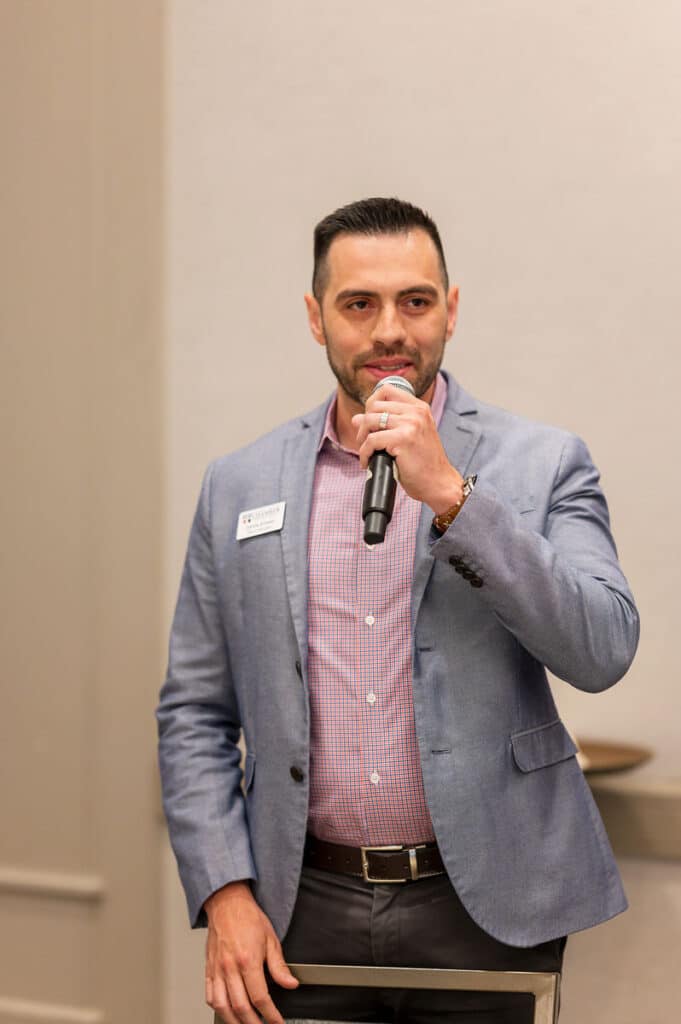
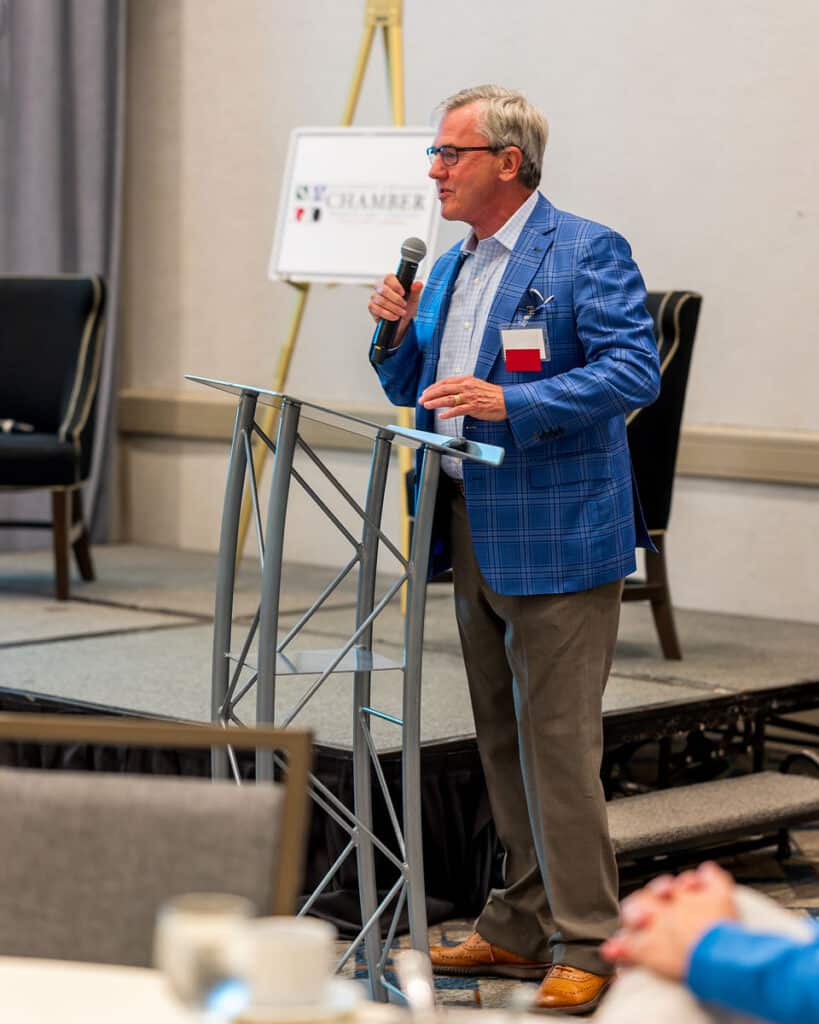
Looking ahead
As the session wrapped, Romman and Hilton pointed out legislation they’d like to see move forward next year.
“House Bill 971 creates a $300 tax credit for taxpayers who sign up for firearm safety training or purchase a safe storage device. It’s a bipartisan measure, viewed by some as a small but perhaps significant move for gun safety advocates, which was tabled in the Senate room,” said Romman.
She said the bill wouldn’t even require someone to disclose that they owned a firearm, but it was meant to incentivize people to store their firearms properly.
“There wasn’t a lot of appetite if somebody didn’t properly store their gun to have consequences for that, so we thought it would just incentivize better behavior,” she said.
Hilton mentioned school safety.
“Over the last three years, every single school in Georgia has gotten a one-time $100,000 grant for School Safety. That’s every school in Georgia; in this most recent budget, we included $45,000 in recurring money for every school in the state to do whatever they want to ensure their campuses are safe,” he said. This includes private schools as well.
At the end of the event, Hilton and Romman reminded the audience that they weren’t running against each other, and even though their views were different, their goals for a better Georgia were equally as passionate.
Related
Read the Digital Edition
Subscribe
Keep Up With Peachtree Corners News
Join our mailing list to receive the latest news and updates from our team.
You have Successfully Subscribed!

What’s going on at Jones Bridge Park and the Challenges of Urban Development

Taste of Peachtree Corners: PCBA Showcases Local Restaurants

The Forum Gives Sneak Peek of New Eateries and Community Spaces

Southwest Gwinnett Mayors Share Visions for the Future

8 Events Happening In and Around Peachtree Corners This August

Peachtree Corners Shines Bright with Light Up the Corners Glow Race this August

Peachtree Corners Shines Bright with Light Up the Corners Glow Race this August

The Forum Gives Sneak Peek of New Eateries and Community Spaces

8 Events Happening In and Around Peachtree Corners This August

Southwest Gwinnett Mayors Share Visions for the Future

Taste of Peachtree Corners: PCBA Showcases Local Restaurants

What’s going on at Jones Bridge Park and the Challenges of Urban Development

Local Resident Opens AtWork Location in Peachtree Corners

CHRIS 180 Expands its Services into Gwinnett County [Podcast]

Light up the Corners [Video]

Capitalist Sage: Business Leadership in Your Community [Podcast]

Cliff Bramble: A Culinary Adventure through Italy

Top 10 Brunch Places in Gwinnett County

A Hunger for Hospitality

THE CORNERS EPISODE 3 – BLAXICAN PART 1

Top 10 Indoor Things To Do This Winter

The ED Hour: What it takes to Remove Barriers from Education
Peachtree Corners Life
Topics and Categories
Trending
-
Business1 week ago
Taste of Peachtree Corners: PCBA Showcases Local Restaurants
-
Business2 days ago
The Forum Gives Sneak Peek of New Eateries and Community Spaces
-
City Government4 days ago
Southwest Gwinnett Mayors Share Visions for the Future
-
Around Atlanta4 days ago
8 Events Happening In and Around Peachtree Corners This August






